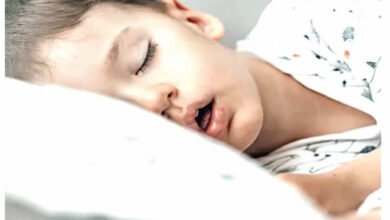Experts Warn: Excessive Radiation Exposure in Pregnancy Linked to Baby Hearing Loss

Health experts have issued a strong warning to pregnant women about the dangers of excessive radiation exposure, cautioning that it may increase the risk of congenital hearing loss and other developmental abnormalities in babies.
According to specialists, while diagnostic imaging such as CT scans and X-rays can be useful when medically necessary, repeated or excessive exposure, especially during key stages of fetal development, poses significant risks.
Professor Titus Ibekwe, Provost of the College of Health Sciences at the University of Abuja and a professor of Otorhinolaryngology, explained that radiation is among the causes of congenital hearing loss.
He clarified that occasional imaging is generally safe when supervised by a medical professional, but warned that repeated exposure without medical necessity can be harmful.
“There are other possible congenital causes like radiation,” he said. “This is why pregnant women should not be exposed to excessive radiation. It is not to say that any exposure causes hearing loss, that would be a fallacy, but the danger lies in overexposure.”
Professor Ibekwe also warned about other risk factors, including environmental toxins such as heavy metals, particularly mercury, which can interfere with fetal development.
He pointed out that complications during delivery, such as prolonged labour, can cause oxygen deprivation (asphyxia), which may damage the brain and the cochlea, the sensory organ for hearing.
Additionally, infections during pregnancy, including rubella, HIV, cytomegalovirus, syphilis, toxoplasmosis, and herpes simplex, can contribute to hearing loss and other organ damage in the unborn child. He urged pregnant women to adhere strictly to antenatal care routines and to ensure that both mother and baby receive essential immunisations.
Neonatal jaundice, if not promptly managed after birth, was also cited as a risk factor. The expert emphasized the need for early detection and medical intervention to avoid irreversible damage.
Speaking further on the issue, Professor Samuel Adoga, a Consultant ENT (Ear, Nose, and Throat) Surgeon at the Federal University of Health Sciences Teaching Hospital in Otukpo, Benue State, said treatment options for hearing loss vary depending on its severity. Some patients require hearing aids, while others may need cochlear implants, a solution that remains out of reach for many due to the high cost.
“A cochlear implant in Nigeria can cost around $15,000 per ear, and up to $27,000 for both. These devices are imported, and patients also have to bear the costs of necessary scans and evaluations,” he said.
Adoga stressed the importance of seeking care from trained ENT specialists, noting that many people with ear problems consult general physicians or non-specialists, which can lead to inadequate or even harmful treatment.
“Hearing care is a specialised field,” he warned. “Seeing the right doctor early makes all the difference in outcomes. Mismanagement of hearing issues can lead to permanent complications.”
The overarching message from both experts is clear: pregnant women should avoid unnecessary radiation exposure, follow medical guidance strictly, and ensure consistent antenatal care. Early detection, prevention, and proper treatment are critical to reducing the risk of congenital hearing loss in newborns.





